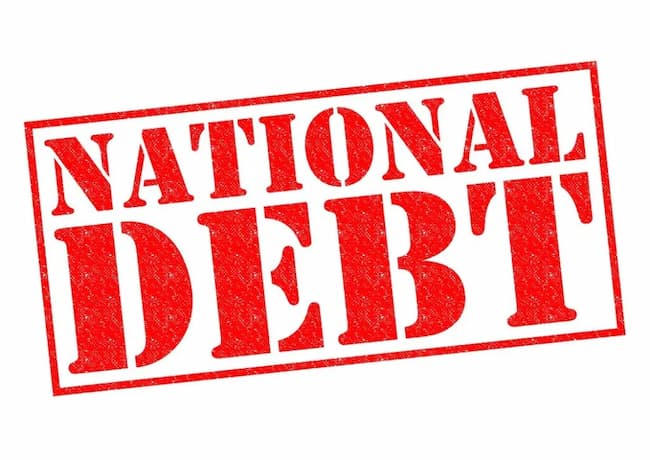Recent analyses suggest that Nigeria’s total debt stock could surge from N87.3 trillion, as of December 2023, to a staggering N111.4 trillion, propelled by new borrowings in the first quarter of 2024.
A comprehensive review by The PUNCH reveals that the Federal Government tapped various financing avenues, including fixed income instruments and a portion of a $3.3 billion Afreximbank loan, to secure over N7 trillion in the initial quarter of the year.
These local borrowings predominantly involved Treasury Bills, FGN Bonds, and Savings Bonds, as the government sought domestic sources amidst exchange rate volatility earlier in the year.
In January 2024 alone, the government raised approximately N418.197 billion from four bonds and obtained N1.49 trillion from two FGN bond offers in February, slightly below the N2.5 trillion target. Additionally, a third FGN bond auction in March generated N450 billion.
Moreover, the Debt Management Office (DMO) issued Savings Bonds totaling N2.43 billion at competitive rates during February and March. Notably, Treasury Bills garnered substantial interest, with total subscriptions reaching N21.17 trillion, and the Central Bank of Nigeria (CBN) recording sales of about N5.64 trillion.
Internationally, Nigeria secured a $3.3 billion crude oil prepayment facility from the African Export-Import Bank in January, with an initial disbursement of $2.25 billion. A second tranche of $1.05 billion is anticipated soon.
Despite these borrowings, the government’s total debt stood at N97.3 trillion in the last update, encompassing both local and external debts owed by states and the Federal Capital Territory. Of this, the Federal Government accounted for N87.3 trillion, split between N53.2 trillion in local debt and N34 trillion in foreign debt, with sub-national governments owing about N10 trillion.
Considering the recent borrowings and the depreciation of the naira against external debt, Nigeria’s total debt is projected to reach N111.4 trillion, reflecting a substantial 27.6% increase from 2023 year-end figures. Moreover, with ongoing plans for additional domestic and external borrowings, this figure is expected to rise further by mid-year.
The government’s active engagement in the debt market aims to address the N9.18 trillion deficit in the 2024 budget. The Minister of Finance and Coordinating Minister of the Economy, Wale Edun, disclosed Nigeria’s pursuit of a $1.5 billion loan from the World Bank this year, further underlining the nation’s borrowing agenda.
Additionally, preparations are underway for a Eurobond issuance, facilitated by global investment banks such as Citibank NA, JPMorgan Chase & Co, and Goldman Sachs Group Inc. This marks Nigeria’s re-entry into the international bond market after a two-year hiatus, signaling its efforts to bolster fiscal budgets.
The government’s recourse to domestic borrowing aligns with the Debt Management Office’s strategy, emphasizing a 70:30 ratio for domestic and external debt composition. However, Nigeria’s current local-external debt ratio of approximately 55:45 falls short of this target, prompting concerns about debt sustainability.
Economic experts caution that unchecked borrowing could exacerbate existing challenges, including high inflation and unemployment. They stress the importance of prudent fiscal management and effective utilization of borrowed funds to avoid a debt crisis and ensure sustainable economic growth.
While Nigeria seeks to revive its economy through capital injections, the effectiveness of these measures hinges on responsible debt management and efforts to enhance revenue generation and minimize leakages in public finances.













